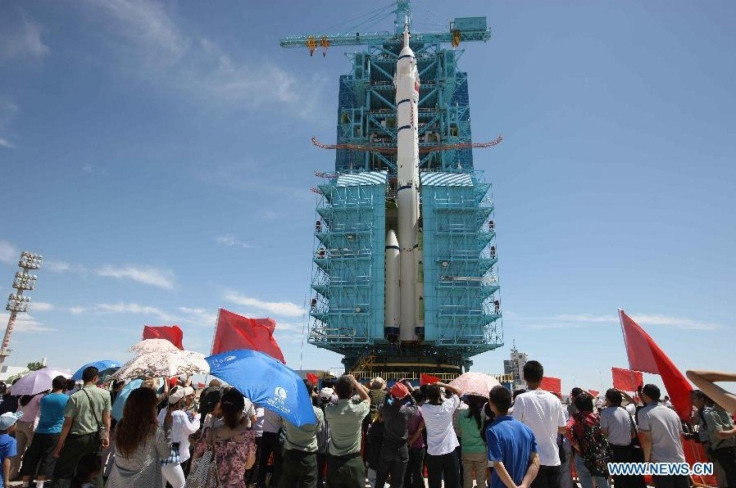China Expected To Send Its First Woman Into Space This Weekend

By this weekend, China will likely become the third country in the world to put a woman into space.
Some Chinese news channels have already begun reporting that anonymous scientists at the Jiuquan Launch Center in the country's northwest expect June 16 to be the first launch window for the mission.
The team of Chinese astronauts will be composed of two men and one woman. Although it is yet unconfirmed who exactly will be chosen for the mission, Chinese state media have mentioned that the two female candidates who have made it to the final stage are air force Lts. Wang Yaping and Liu Yang.
Xinhua says both were chosen for their excellent flight skills and psychological quality.
The mission will also mark the country's first attempt at space docking involving human passengers -- to be carried out between its Shenzhou-9 and Tiangong space crafts. The former is an updated version of the vessel that put China's first human being into space in 2003 -- similar to Russia's Soyuz capsule in design. The latter is a laboratory module that is expected to serve as the foundation piece of a future space station.
China's impressive gains in space exploration have spooked many American scientists and academics, who are lamenting the U.S. public's reduced interest in NASA missions.
Competition over space exploration is also heating up in Asia, as nations in the region compete to put up new communications and surveillance satellites and send out exploratory probes.
Moreover, though governments around the world are becoming attracted to the idea of broader commercialization of the space exploration industry, they also haven't forgotten that the cosmos remains the ultimate high ground for national security.
Indeed, international representatives have been meeting in Vienna since June 6 at the United Nations Committee on the Peaceful Uses of Outer Space.
Last Wednesday, China's representative to the meeting, Cheng Jingye, made an effort to outline his country's good intentions and efforts to promote peace, development, cooperation and rule of law in outer space.
But it was also apparent that Cheng was offering another very familiar message: China's eagerness to work with developing nations for mutual economic and strategic benefit.
Cheng was quoted by the People's Daily newspaper saying that China is willing to cooperate with other countries and to provide the opportunities for more countries, particularly the developing countries, to participate in the construction of the Chinese space station and scientific research, in order to share opportunities and achievements in the development of China's space program.
© Copyright IBTimes 2024. All rights reserved.




















